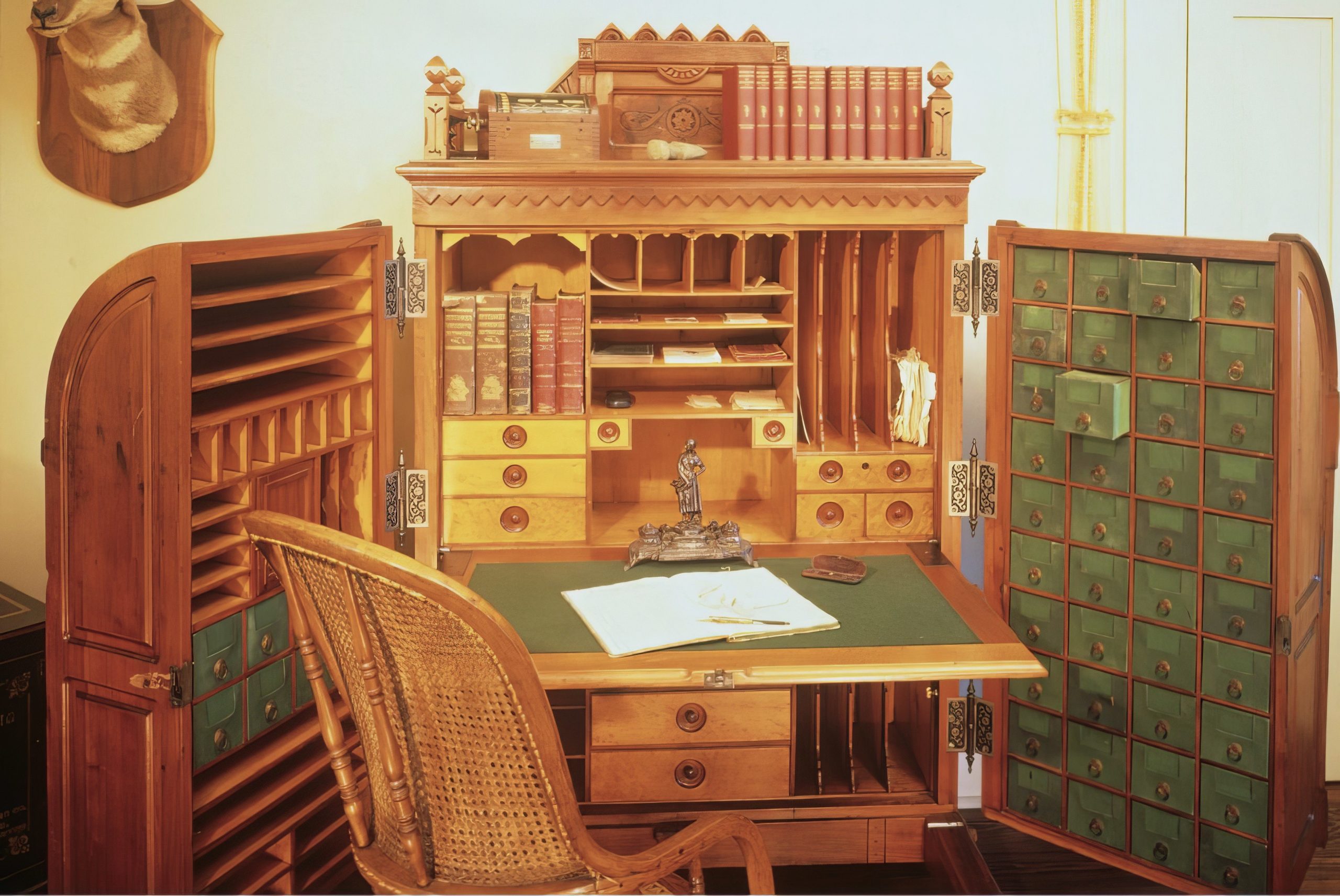The elaborately crafted Wooton Patent Desk was the creation of William S. Wooton who, along with his furniture expertise, was a longtime Quaker minister. Born in Preble County, Ohio, on May 12, 1835, he was the eighth of 13 children. The family moved often between Ohio and Indiana before finally settling in Grant County, Indiana in 1849. Wooton worked as a patternmaker in Richmond, Indiana, and married Theodocia Stratton in 1862.

A partner in George H. Grant and Company, a furniture manufacturing firm that produced office and school furnishings, Wooton moved to Indianapolis in 1870, becoming one of many who made the city a booming marketplace for furniture manufacturing during the 19th century. He established William S. Wooton and Company with offices on East Washington Street. The Wooton firm was soon producing school desks and won a bid to supply city schools with new furniture after another company was unable to meet the contract’s requirements.
The Wooton Company, however, would make its mark not with school desks, but with a unique office desk that would become known as “The King of Desks.” On October 6, 1874, the United States Patent Office issued Wooton a patent for “Wooton’s Patent Cabinet Office Secretary.” Resembling an ornate Victorian cabinet when closed, the Wooton Desk, when opened, revealed approximately 100 separate compartments and a writing desk. Wooton’s contribution to the furniture trade was critically acclaimed, winning an award at the 1876 Centennial Exhibition in Philadelphia.
The desk was also an instant success with businessmen of the time at home and abroad. Wooton desks were owned by such influential figures as Jay Gould, Ulysses S. Grant, Sidney Lanier, Joseph Pulitzer, John D. Rockefeller, and Charles Scribner. Reportedly, even Queen Victoria owned a Wooton Desk.
By the 1880s, sales of Wooton Desks were on the decline. Wooton himself left the firm in 1880, moving to Danville, Indiana, which possibly contributed to the company’s downfall. For the rest of his life, Wooton served as a Quaker minister in several cities. He died on August 26, 1907, in Denver, Colorado.

Help improve this entry
Contribute information, offer corrections, suggest images.
You can also recommend new entries related to this topic.